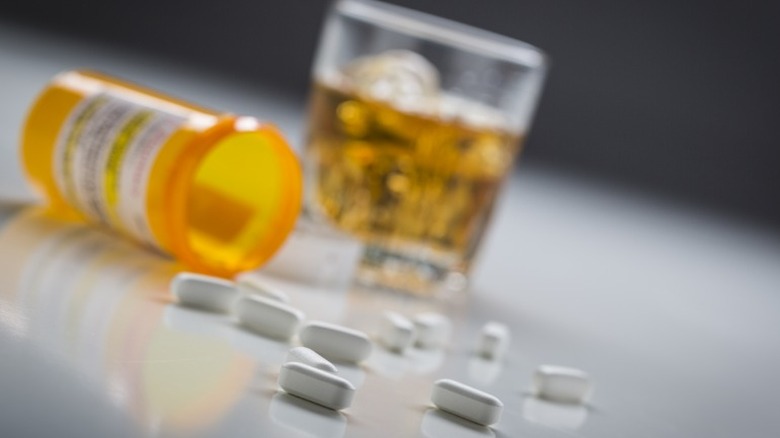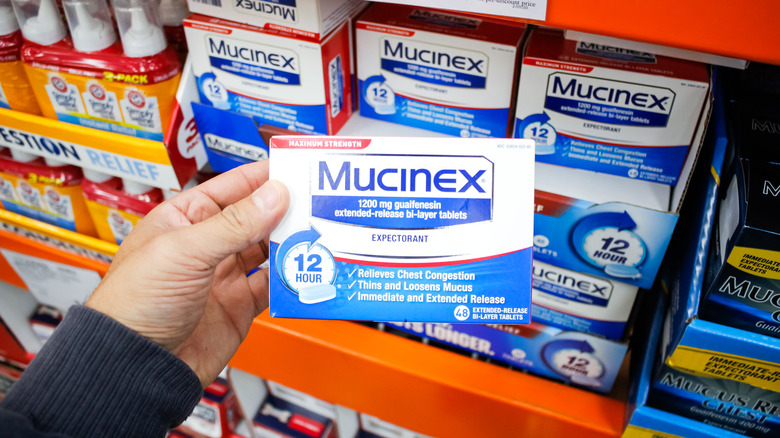Is It Safe To Drink Alcohol When Taking Mucinex?
Part of maintaining a healthy lifestyle involves keeping tabs on what you put into your body. So whether you take supplements or are on medications from your doctor, it is critical to know what goes in your body to ensure they are safe to take at the same time. If not, you could run into a number of health issues brought on by drug interactions.
Drug interactions can take place with a number of things that range from over-the-counter medications, prescription drugs, recreational drugs, foods and beverages, and even a specific health condition. When a drug interacts with another drug, it can cause adverse or unwanted side effects. It can also make your drug less effective or affect your body with greater power. Sometimes the encounter can actually be harmful, especially if you plan on taking your medication with alcohol. Keep reading to learn more about how alcohol can interact with certain drugs.
The interaction of alcohol and other drugs
For many people, alcohol is a drug typically consumed as a beverage. It often makes people feel relaxed. This may lead some people to explore trying alcohol while they are also on other medications. However, mixing alcohol with other drugs can be dangerous and even deadly, explains the University of Health Service at the University of Michigan.
For example, drinking alcohol while on a depressant drug like Xanax can cause the two drugs to produce a more significant effect than either would on its own and can be fatal. You may experience symptoms like dizziness and loss of memory. When taken with alcohol, stimulants like Adderall can make you unaware of how intoxicated you are, which may lead to drinking much more than you normally would, eventually causing you to black out. With that being said, you may be wondering if mixing alcohol with an over-the-counter medication, like Mucinex, is okay. Here's everything you need to know.
Mucinex and alcohol
Mucinex is the brand name for a group of over-the-counter medications that help treat symptoms related to the common cold, cough, and the flu. There is a multitude of Mucinex products that can address individual symptoms or provide multi-symptom relief. These products are available in caplets, liquid gels, oral liquids, and sprays, among others. However, the main drug ingredient in the Mucinex product family is called guaifenesin (via GoodRx Health). This drug is classified as an expectorant, which helps break up and dislodge built-up mucus.
According to Medical News Today, taking Mucinex with alcohol can produce side effects, including dizziness, increased heart rate, internal bleeding, stomach ulcers, liver damage, and lead to a risk of overdose. Further, taking Mucinex with alcohol can also increase your level of toxication, which may enhance certain symptoms, like dizziness. Therefore, you should not consume alcohol if you are currently taking Mucinex.



